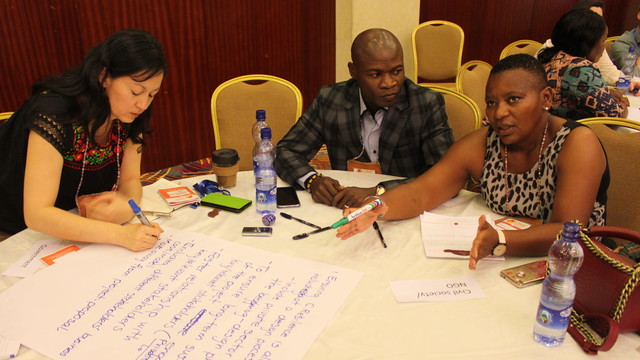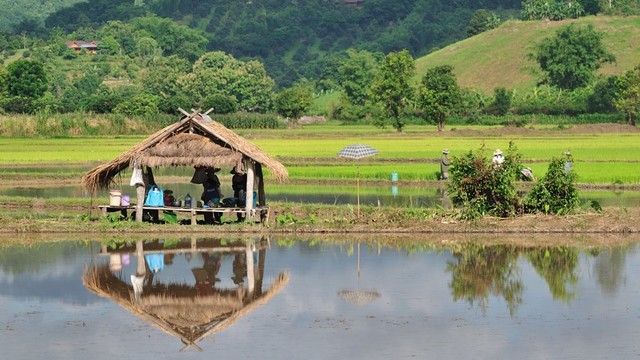Nature-based solutions for climate change: from global ambition to local action
The world is facing two unprecedented environmental crises: biodiversity loss and climate change. The causes of these challenges are interrelated, as are the solutions. On 22 May, 2020, the International Day of Biological Diversity, IIED hosted an online event to discuss how we can translate the global ambition around nature-based solutions for climate change into local action.

Nature, underpinned by biodiversity, delivers a range of benefits to people and underpins society’s resilience (Image: copyright Cecile Girardin/IIED)
In 2019, warnings on the climate emergency rung out clearly as evidence of the ecological crises mounted. We saw increasing public and private sector support globally for nature-based solutions (NbS) for climate change.
Nature-based solutions are actions that protect, sustainably manage and restore natural or modified ecosystems to address societal challenges. They can provide a wide range of environmental, social and economic benefits and are indispensable for both climate change mitigation and adaptation.
As the host of the next United Nations Framework Convention on Climate Change (UNFCCC) climate change summit (COP26), the UK government has already pledged more than GBP£100 million funding to stem accelerating biodiversity loss that will also contribute to climate change mitigation and adaptation.
World leaders have called for bold and urgent actions leading up to COP26 and the 15th Convention on Biological Diversity Conference of the Parties (COP15) hosted by China. The theme for the International Biological Diversity Day this year is also ‘our solutions are in nature’.
Event coverage
Read a blog setting out some of the main points covered during the webinar.
Watch a recording of the webinar below, or on IIED’s YouTube channel.
View the speaker presentations on IIED's SlideShare channel:
This online event brought together government, private sector and practitioners to discuss how we can translate global ambitions on NbS into local actions that can benefit those most vulnerable to climate change. It asked:
- How can NbS move us from business as usual and deliver changes we need urgently and at scale?
- How can NbS be financed so the resources can reach communities who are already bearing the brunt of climate change impacts?
- How can those who have been implementing NbS, including indigenous peoples and local communities, be supported to work with nature at scale?
Speakers
Alex White, International Climate and Strategy, UK Department for Environment, Food and Rural Affairs (DEFRA): Alex is part of the International Strategy and Overseas Development Assistance (ODA) Division that oversees ODA spend, including international climate finance as well as international agriculture, forest and NbS policy.
Chip Cunliffe, sustainable development director for AXA XL: Chip established and manages AXA’s Ocean Risk Initiative, which works to identify innovative insurance and finance solutions to the impacts and implications of ocean-related risk.
Musonda Kapena, CEO of the Zambia National Forest Commodities Association: Musonda has over 20 years' of local and international experience with forest communities promoting indigenous knowledge systems towards sustainable management of forest resources and environmental justice.
Xiaoting Hou-Jones (chair), senior researcher in IIED’s Natural Resources research group: Xiaoting has more than 12 years of experience working with governments, NGOs, the private sector and local communities on a wide range of sustainable development issues, including REDD+ and nature-based solutions to climate change adaptation.
Contact
Juliette Tunstall (juliette.tunstall@iied.org), internal engagement and external events officer, IIED's Communications Group



